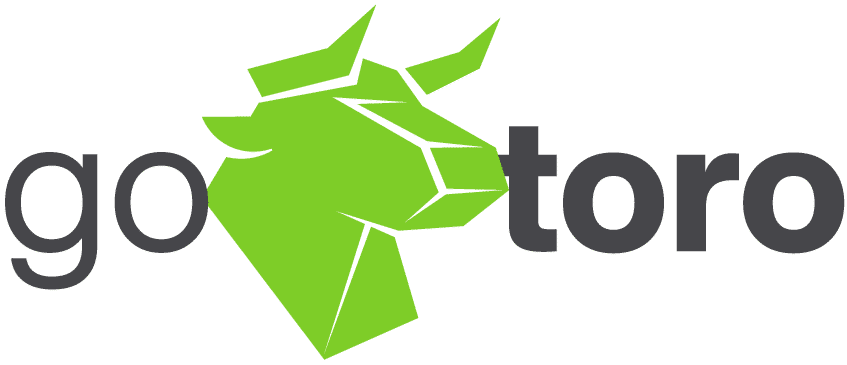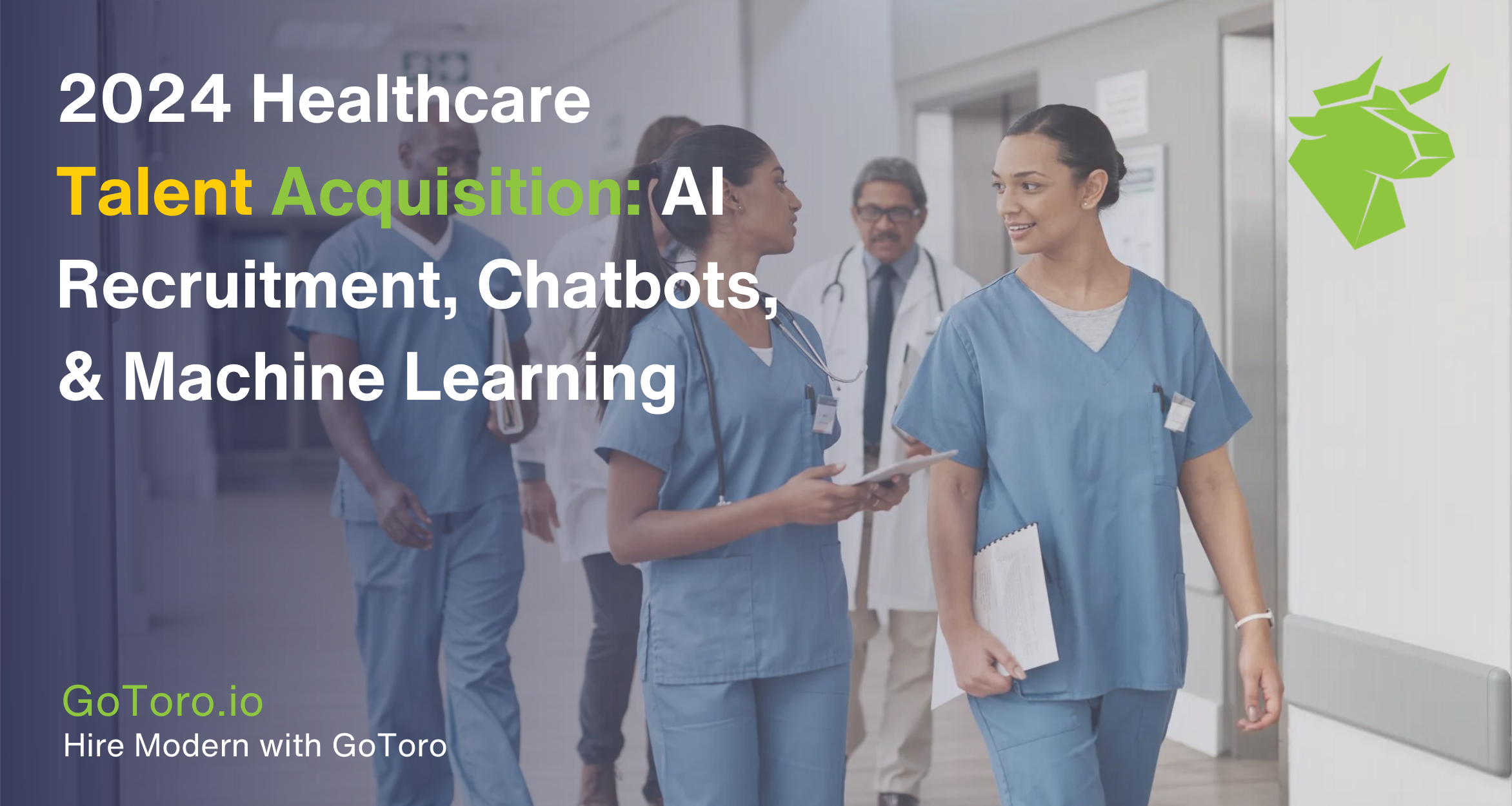The Evolving Landscape of Healthcare Talent Acquisition in 2024
The landscape of healthcare talent acquisition is undergoing a transformative shift in 2024, driven by the rapid advancement and integration of technology in recruitment processes. The sector is witnessing a significant evolution from traditional hiring practices to more dynamic, efficient, and data-driven approaches. This shift is largely attributed to the integration of Artificial Intelligence (AI), chatbots, and machine learning technologies. These technoligies are revolutionizing how healthcare organizations attract, engage, and retain talent. These technological innovations are not just reshaping the mechanisms of recruitment but are also setting new benchmarks for operational efficiency, candidate experience, and the overall effectiveness of healthcare talent acquisition strategies.
Section 1: The Rise of AI in Healthcare Talent Acquisition
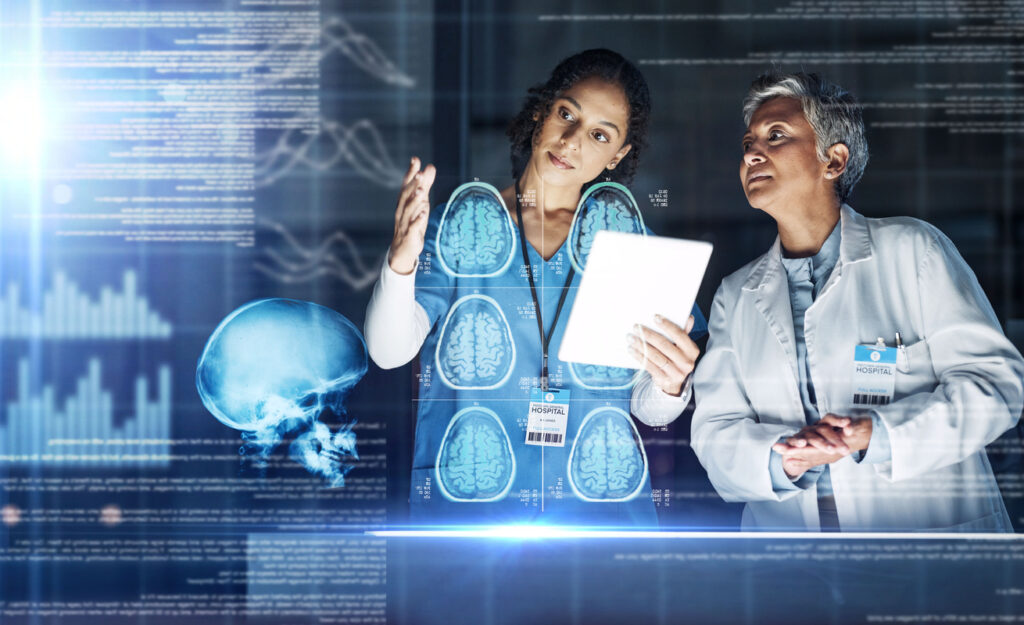
Adoption of AI Technologies in Healthcare Recruitment
The adoption of AI in healthcare talent acquisition is no longer a futuristic concept but a present reality. AI technologies are being increasingly utilized to streamline and enhance the recruitment process, making it more efficient and effective. By automating routine tasks, AI allows recruiters to focus on more strategic aspects of their roles, such as candidate engagement and relationship building.
Improving Recruitment Process Efficiency and Effectiveness
AI significantly improves the recruitment process by offering advanced capabilities in candidate screening, matching, and predictive analytics. These tools can quickly analyze vast amounts of data to identify the most suitable candidates, reducing the time and cost associated with manual screening processes. Furthermore, AI-driven analytics can predict candidate success and cultural fit, enabling more informed hiring decisions.
Examples of AI Tools in Healthcare Hiring
Several AI tools have made their mark in healthcare recruitment, including resume parsing software that quickly extracts relevant information from applications, chatbots that pre-screen candidates and answer their queries, and AI-driven platforms that match candidates to jobs based on skills, experience, and cultural fit. These tools exemplify how AI is streamlining healthcare talent acquisition, making it more responsive and tailored to the needs of both organizations and candidates.
Section 2: Chatbots Enhancing Candidate Engagement
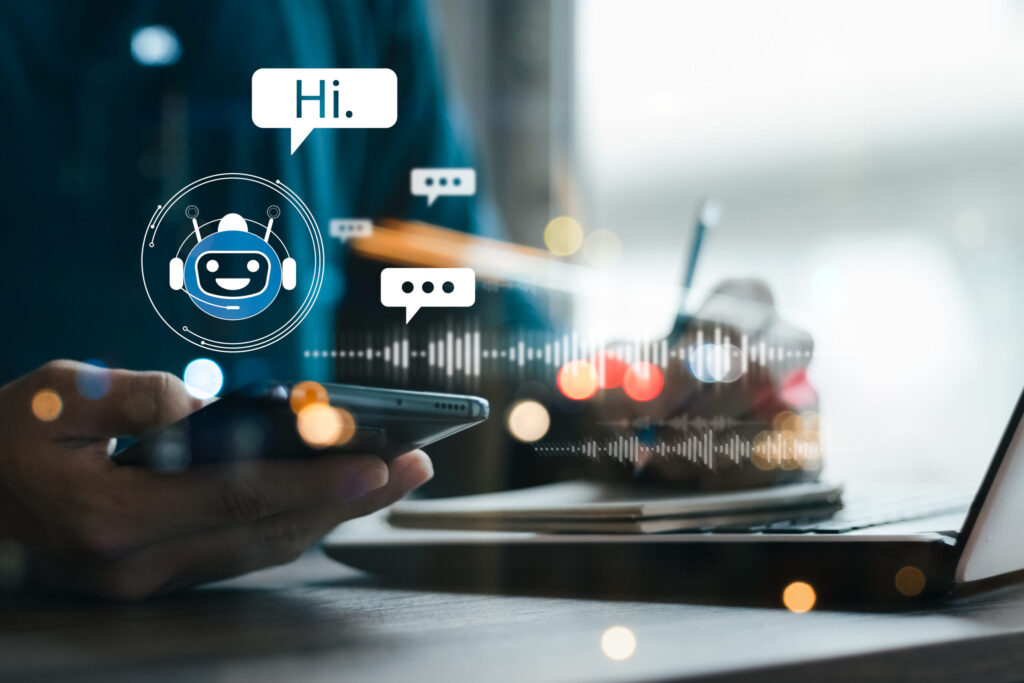
Role of Chatbots in Initial Hiring Stages
Chatbots are playing a crucial role in the initial stages of the healthcare hiring process. They are instrumental in improving the responsiveness time for interested applicants, providing immediate answers to questions, and guiding candidates through the initial steps of the application process. This instant interaction ensures that candidates remain engaged and interested in the position.
Chatbots for Screening, Queries, and Scheduling
Chatbots are adept at conducting initial screenings, answering candidate queries in real-time, and scheduling interviews. This not only enhances the candidate experience by making the process more interactive and accessible but also increases operational efficiency by automating time-consuming tasks.
Benefits of Chatbots in Candidate Experience and Efficiency
The use of chatbots in healthcare talent acquisition offers dual benefits: it significantly improves the candidate experience by providing instant, 24/7 interaction and feedback, and it enhances operational efficiency by automating initial contact, screening, and scheduling tasks. This allows healthcare organizations to maintain a continuous pipeline of engaged and qualified candidates, ultimately leading to more successful hiring outcomes.
By leveraging AI and chatbots, healthcare organizations are not only optimizing their recruitment processes but are also setting new standards for engaging, efficient, and effective talent acquisition in 2024. These technologies are integral to meeting the unique challenges of healthcare hiring. Ensuring that organizations can attract and retain the skilled professionals needed to deliver high-quality care.
Section 3: Machine Learning’s Role in Talent Acquisition
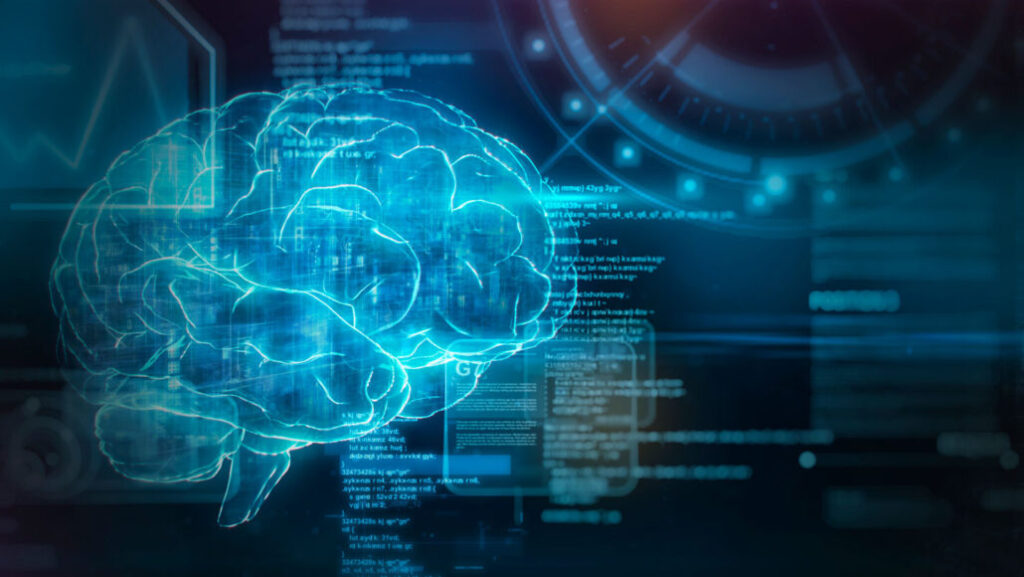
Analyzing Data to Identify Suitable Candidates
Machine learning algorithms have become a cornerstone of healthcare talent acquisition by providing sophisticated data analysis capabilities. These algorithms sift through vast datasets to identify patterns and characteristics of successful candidates, making it possible to pinpoint potential hires with the desired skills and cultural fit. This data-driven approach ensures a more precise match between job vacancies and applicants, significantly improving the quality of hires.
Predictive Analytics for Forecasting Hiring Needs
Predictive analytics, powered by machine learning, allow healthcare organizations to forecast future hiring needs and candidate success with remarkable accuracy. By analyzing historical hiring data, turnover rates, and growth patterns, these tools can predict when and where vacancies are likely to occur, enabling proactive recruitment strategies. Furthermore, predictive models assess the likelihood of a candidate’s success in a role, facilitating more informed hiring decisions.
Keeping Recruitment Ads Fresh and Engaging
Machine learning algorithms play a crucial role in ensuring that recruitment ads remain fresh and engaging. By continuously analyzing candidate interaction data, these algorithms can adjust the content, placement, and targeting of ads in real-time. This dynamic approach prevents ads from becoming stale, maintaining their appeal to potential applicants and maximizing the visibility of job openings.
Reducing Bias in the Recruitment Process
One of the significant advantages of machine learning in healthcare talent acquisition is its ability to reduce bias. By focusing on data and performance metrics, machine learning models can help mitigate unconscious biases that might influence human recruiters. This leads to a more diverse and inclusive workforce, enhancing the overall effectiveness of talent acquisition strategies.
Section 4: Integrating AI, Chatbots, and Machine Learning
Cohesive Recruitment Strategy with AI, Chatbots, and Machine Learning
The integration of AI, chatbots, and machine learning represents a holistic approach to modernizing healthcare talent acquisition. This synergy enhances real-time engagement with candidates and ensures the delivery of dynamic, relevant content throughout the recruitment advertising process. By leveraging these technologies in unison, healthcare organizations can create a more efficient, engaging, and effective recruitment ecosystem.
Challenges and Considerations in Implementation
Implementing these advanced technologies comes with its set of challenges and considerations. Key among these is the need for continuous updating and refinement of AI models and chatbot scripts to meet evolving candidate expectations and industry standards. Healthcare organizations must also navigate the complexities of integrating these technologies with existing HR systems and processes, ensuring data privacy and compliance with employment laws.
The Role of AI in Employee Retention and Development
Supporting Retention and Development with AI
In the realm of healthcare talent acquisition, the role of AI extends far beyond the initial hiring phase, playing a pivotal role in employee retention and development. AI-driven tools are revolutionizing how healthcare organizations support their workforce post-hire, fostering a culture of continuous learning and engagement.
Personalized Learning and Development Programs
AI-powered platforms are enabling personalized learning experiences by tailoring development programs to the unique needs and career aspirations of each employee. These tools assess individual skills, performance data, and career goals to recommend customized learning paths. This not only enhances professional development but also significantly increases job satisfaction and employee retention rates.
Predictive Analytics for Identifying At-Risk Employees
Predictive analytics, a cornerstone of AI in healthcare talent acquisition and retention, can identify employees who may be at risk of leaving. By analyzing patterns in employee behavior, engagement levels, and performance metrics, healthcare organizations can proactively address concerns, offer targeted support, and mitigate turnover. This predictive capability ensures that interventions are timely and relevant, greatly improving retention outcomes.
Enhancing Engagement Through Personalized Experiences
AI is also instrumental in enhancing employee engagement through the delivery of personalized experiences. From tailored wellness programs to recognition initiatives, AI enables healthcare organizations to create a more engaging and supportive work environment. By acknowledging individual contributions and providing personalized support, AI helps foster a sense of belonging and commitment among healthcare professionals.
Section 6: The Future of Healthcare Talent Acquisition

Predicting Future Trends
As we look to the future of healthcare talent acquisition, it’s clear that AI, chatbots, and machine learning will continue to play a critical role. Advancements in these technologies, coupled with changes in candidate behavior and expectations, are poised to further transform the recruitment landscape. We can expect to see more sophisticated AI algorithms, enhanced chatbot interactions, and even deeper insights from machine learning, driving efficiency and effectiveness in recruitment processes.
Addressing Talent Shortages and Improving Healthcare Services
The potential of AI and related technologies to address talent shortages and improve healthcare services is immense. By automating routine tasks, enhancing candidate matching, and streamlining the recruitment process, these technologies can help healthcare organizations attract and retain the skilled professionals needed to meet growing healthcare demands. Moreover, the ability to predict and prepare for future talent needs ensures that healthcare services remain robust and responsive to patient needs.
Ethical Considerations and Human Oversight
As the reliance on AI in healthcare talent acquisition grows, so too does the importance of ethical considerations and the need for human oversight. Ensuring fairness, transparency, and privacy in AI-driven processes is paramount. Healthcare organizations must implement ethical guidelines and maintain human oversight to prevent bias, protect candidate data, and ensure that recruitment and retention strategies remain aligned with organizational values and goals.
The future of healthcare talent acquisition is undoubtedly intertwined with the continued evolution and integration of AI, chatbots, and machine learning. As these technologies advance, they offer unprecedented opportunities to enhance recruitment and retention strategies. As well as improve healthcare services, and navigate the challenges of a changing workforce. By embracing these innovations and addressing ethical considerations head-on, healthcare organizations can secure a competitive edge in attracting and retaining top talent. Ultimately contributing to the delivery of superior healthcare outcomes.
Preparing for the Future Workforce
As healthcare talent acquisition continues to evolve under the influence of AI technologies, healthcare organizations must proactively prepare for the future workforce. This preparation involves understanding the emerging demands and expectations of both the workforce and the healthcare industry at large, shaped significantly by technological advancements.
Anticipating Future Workforce Demands
The rapid advancement of AI technologies necessitates a workforce that is not only tech-savvy but also adaptable to the changing landscape of healthcare. Healthcare organizations must anticipate the need for new roles that AI and automation will create, as well as the transformation of existing roles. This anticipation involves forecasting skills gaps and developing strategies to bridge these gaps proactively.
Skills and Competencies for Working Alongside AI
To work effectively alongside AI, healthcare professionals will need a blend of technical and soft skills. Technical skills may include data analysis, machine learning basics, and an understanding of AI applications in healthcare. Equally important are soft skills such as critical thinking, empathy, and adaptability. These skills will enable healthcare professionals to leverage AI technologies while delivering patient-centered care.
Supporting Workforce Skill Acquisition
Healthcare organizations play a critical role in supporting their workforce in acquiring these essential skills. This support can take the form of continuous learning and development programs, partnerships with educational institutions, and access to online learning resources. Encouraging a culture of lifelong learning and innovation is key to ensuring that healthcare professionals remain competitive and can harness the benefits of AI technologies in their practices.
The adoption of AI in healthcare talent acquisition marks a clear shift. It has transformed how organizations attract, engage, and keep talent. AI, chatbots, and machine learning not only make recruitment smoother but also enrich the candidate experience. This leads to greater efficiency and effectiveness in hiring. As AI technology advances, it promises to keep reshaping healthcare recruitment. Healthcare organizations stand to gain a competitive advantage by embracing these changes. Despite some challenges, the move towards AI in recruitment offers significant benefits. It positions these organizations to lead in the future of healthcare hiring, improving the industry and patient care. Discover how our AI-driven solutions can revolutionize your healthcare talent acquisition process—request a demo today.
